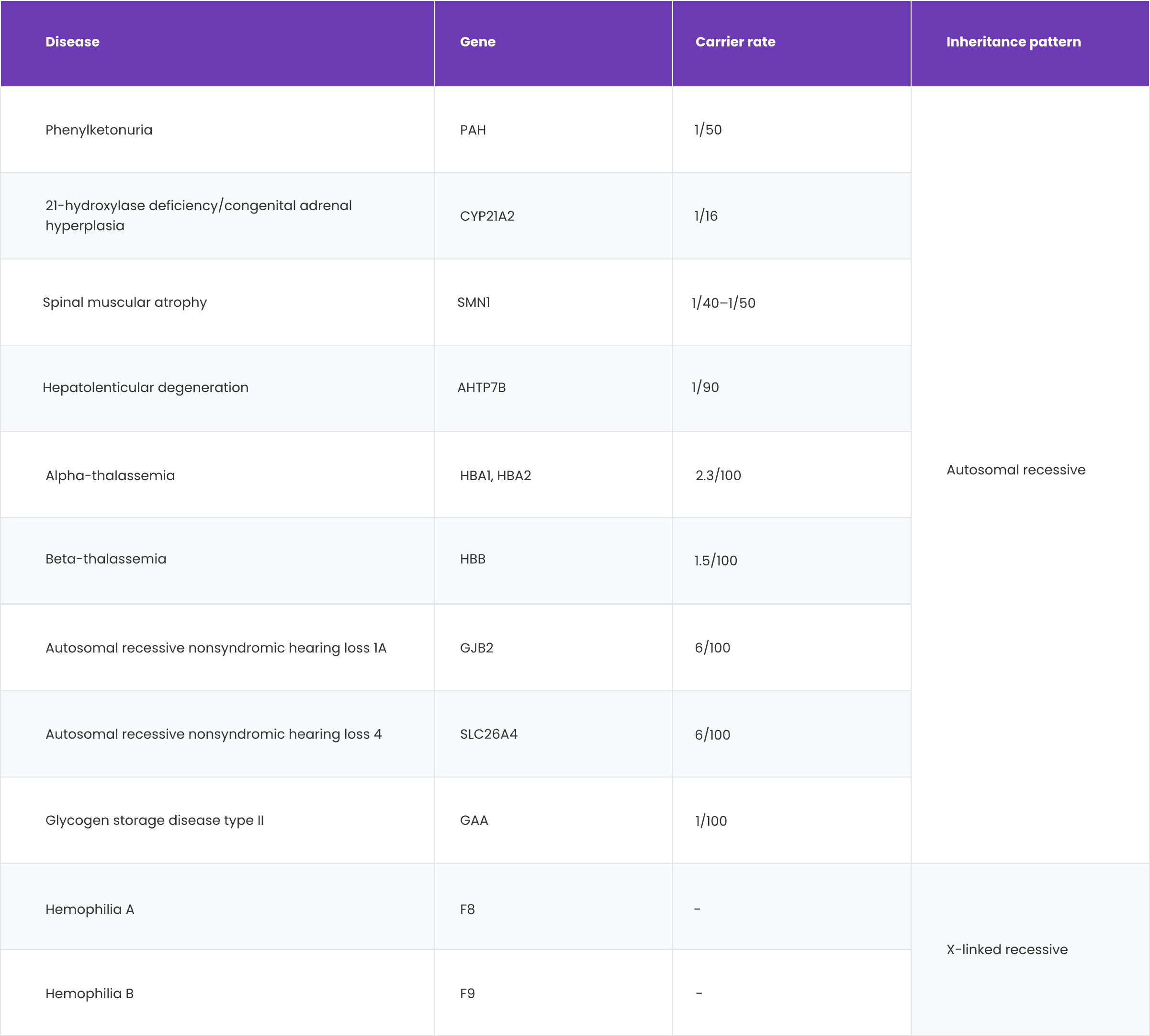What is this test?
With an oral swab, a peripheral blood sample or a DNA sample, this test can detect genes related to 11 recessive monogenic disorders. If you are planning to have children, this rapid and accurate test helps you understand your carrier status and the risk of passing on genetic conditions to your children, and also helps you make informed decisions about family planning.
What is it for?

Why is it needed?
-
Risk assessment
This test can identify couples who are both carriers of the same recessive monogenic disorders, assess the risk of having children with those conditions, and help them make informed decisions about reproductive options.
-
Early discovery and intervention
This test can identify newborns with genes responsible for monogenic disorders, and allow timely diagnosis and intervention including the use of disease-modifying therapies, so as to reduce symptoms and improve prognosis.
-
Family health management
This test can help you understand your own and your descendants' risk of having genetic diseases, receive genetic counseling if needed, and help you make informed health decisions.
Specifications
Parameters | Standards |
|---|---|
Enrichment method | Multiplex PCR |
Compatible sequencers | Illumina and MGI |
Number of genes | 12 |
Size of the target region | 25 kb |
Variant type | SNV and indels |
Number of amplicons | 103 |
Length of amplicons | 200–280 bp (245 bp on average) |
Number of pools | 1 |
Sample input amount | 10-100 ng |
Sample types | Saliva, blood and DNA |
Library preparation time | 4.5 hours |
Hands-on time | < 1 hour |
Type of sequencing | PE150 |
Target designed rate | 100% |
Coverage | 100% |
> 0.2× mean depth (uniformity) | > 99% |
On-target rate | > 95% |
Join us for a better future of IVD.
If you have any question or need any support, please fill out the information below.







